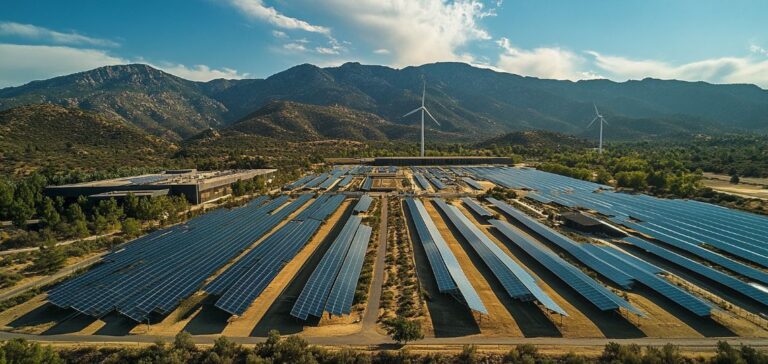Enfinity Global has reached a major milestone by securing connectivity for 2 gigawatts (GW) of solar and wind projects across four key Indian states: Rajasthan, Uttar Pradesh, Maharashtra, and Karnataka. This capacity adds to an already significant portfolio and aligns with India’s broader goals of integrating industrial and energy objectives with its ambitious energy transition targets.
These projects, designed to supply reliable electricity to commercial and industrial (C&I) customers as well as public utilities, come at a pivotal moment for the energy sector. With soaring energy demand, particularly in the industrial hubs of these states, the network connectivity of these 2 GW will ensure greater integration of renewable capacities into India’s energy mix while addressing critical infrastructure needs.
A high-stakes economic market
Securing this connectivity highlights a dual objective: meeting energy demand while maximizing international investments in the Indian market. With a national target of 500 GW of non-fossil energy capacity by 2030, India has become a focal point for global energy companies. Maharashtra and Karnataka, in particular, host a large share of industrial developments and new energy installations due to their economic potential and favorable strategies for attracting foreign direct investments.
Enfinity Global, having already consolidated 240 megawatts (MW) of operational capacity in India, plans to begin construction on over 1 GW of projects in the first quarter of 2025. This rapid deployment underscores India’s strategic importance for market players, who view the country as a long-term opportunity for establishing public-private partnerships and addressing the tailored needs of local industrial clients.
Financing and priority alignment
The success of these initiatives also depends on a robust financing ecosystem. Enfinity recently secured a $135 million junior financing agreement with the Canada Pension Plan Investment Board (CPP Investments), reflecting institutional investors’ growing interest in renewable energy projects in India. International financial actors, working alongside local banks, are increasingly supporting energy infrastructure, particularly amid global market volatility.
At the same time, the company continues to win competitive bids, including a 300 MW hybrid solar-wind project awarded in late 2024. Such projects illustrate a trend toward diversifying operational models, often integrating energy storage systems to ensure supply stability.
A strategic position in the value chain
With a long-term vision, Enfinity Global plans to develop projects capable of delivering more than 5 gigawatt-hours (GWh) of renewable electricity annually, particularly through power purchase agreements (PPAs) tailored to the needs of commercial customers. This approach reflects a broader shift in the Indian market, where major industrial energy consumers increasingly favor bilateral agreements to secure competitive energy supplies.
In a sector where political decisions, regulatory incentives, and access to capital are critical, this type of development aligns well with national priorities. The connectivity for these 2 GW projects represents an essential step toward integrating renewable capacities while highlighting the central role of strategic partnerships between international companies and local institutions in transforming India’s energy landscape.






















